Imagine genetic testing that would detect cancer and pinpoint other important health information, including how a patient might respond to chemotherapy — all of which would help in recovery and improve overall health.
This capability has arrived with the opening of the Kaiser Permanente Northern California Genomics Laboratory this month.
“We have been testing for the disease, but now we will test the whole patient,” said Jason Rosenbaum, MD, the lab’s director and a pathologist during an April 1 ribbon-cutting ceremony.
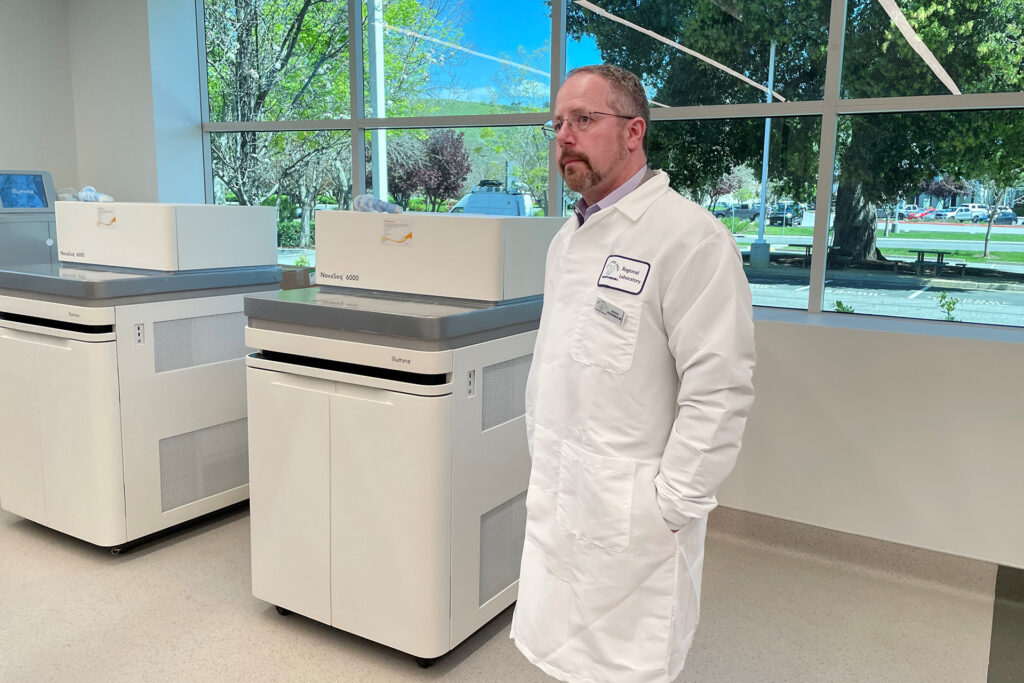
In what looks like an ordinary business park in San Jose, the new custom-built, 65,000-square-foot lab includes the latest technology and is environmentally friendly having earned GOLD certification from LEED (Leadership in Energy and Environmental Design), which is the world’s most widely used green building rating system. The zero-emission lab is also all electric.
The new lab is expected to be fully operational by the end of this year and promises to put Kaiser Permanente Northern California on the map with precision medicine.
“We are not just innovating around a disease, we are innovating around a system,” said Marty Ardron, senior vice president of operations for Kaiser Permanente Northern California. ”With our care and coverage model, we are uniquely qualified to offer such a service.”
More comprehensive testing
For decades, Kaiser Permanente has done genetic testing, which examines individual genes and detects genetic irregularities, or inherited disorders, such as cystic fibrosis and sickle-cell anemia. That testing can also identify treatments and predict family members with inherited disorders.
The new lab will continue to do that, plus extend into complex genomics, the study of many or all of a person’s genes and how they interact with each other and with the person’s environment. Genomics also includes heart disease, dementia, diabetes, cancer, and other complex conditions. The new lab enables testing for hundreds or thousands of genes that affect health, rather than testing for the presence of a single disease.
This new lab was built specifically for genomics and intends to bring most testing in-house, reducing costs, Dr. Rosenbaum notes. With the capacity to expand another 20,000 square feet, the new space currently occupies 45,000 square feet – up from 25,000 square feet in the old facility. The old lab processed 80,000 tests per year, while the new one will double that volume in the next 5 years.
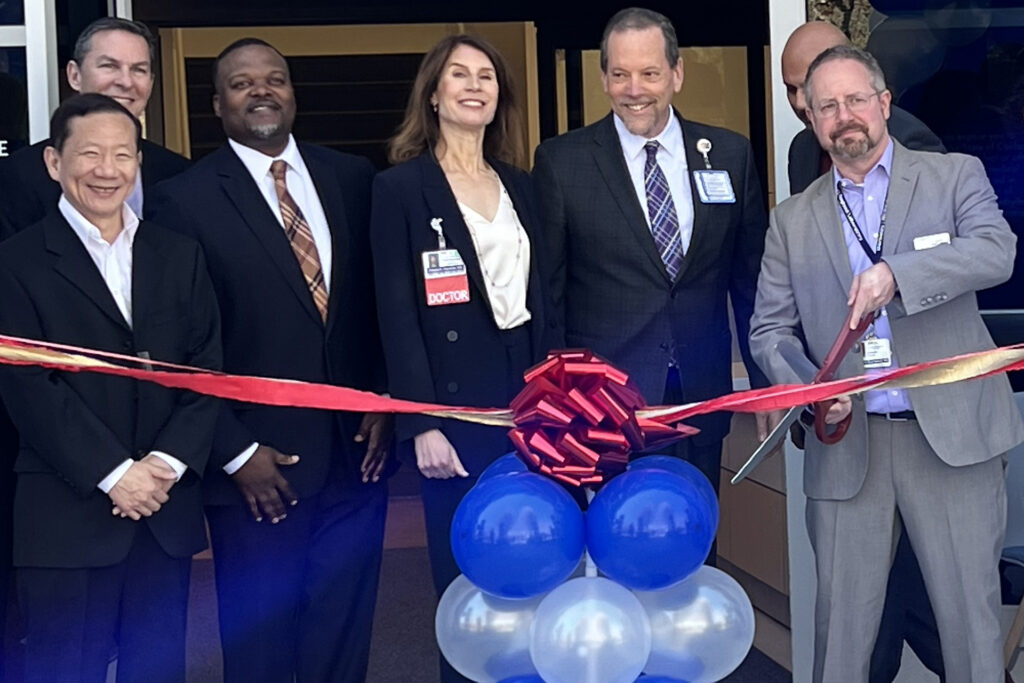
Robots in the lab make this possible because they can perform more tests quickly, more efficiently, and with accuracy not possible with human hands.
While robots conjure up images of sleek, futuristic machines, the equipment mostly resembles commercial copiers or printers.
Dr. Rosenbaum puts the lab’s cutting-edge technology into perspective.
“Aside from maybe the MRI, it’s the most sophisticated testing created,” he said.
On opening day, the lab performed its first non-invasive prenatal screening test, which identifies chromosome disorders on fetal DNA. The region began running these tests a year ago, and the new lab will process the latest expanded version.
“We are marking a milestone,” Dr. Rosenbaum said. “Kaiser Permanente Northern California has more than 4 million members, and they all have genomes. By my math, we will have a lot of work to do.”
Kaiser Permanente has historically worked to reduce our greenhouse gas emissions and reduce our carbon footprint. Here you can find additional information on how we measure, verify, and disclose our emissions commitments and reduction goals.
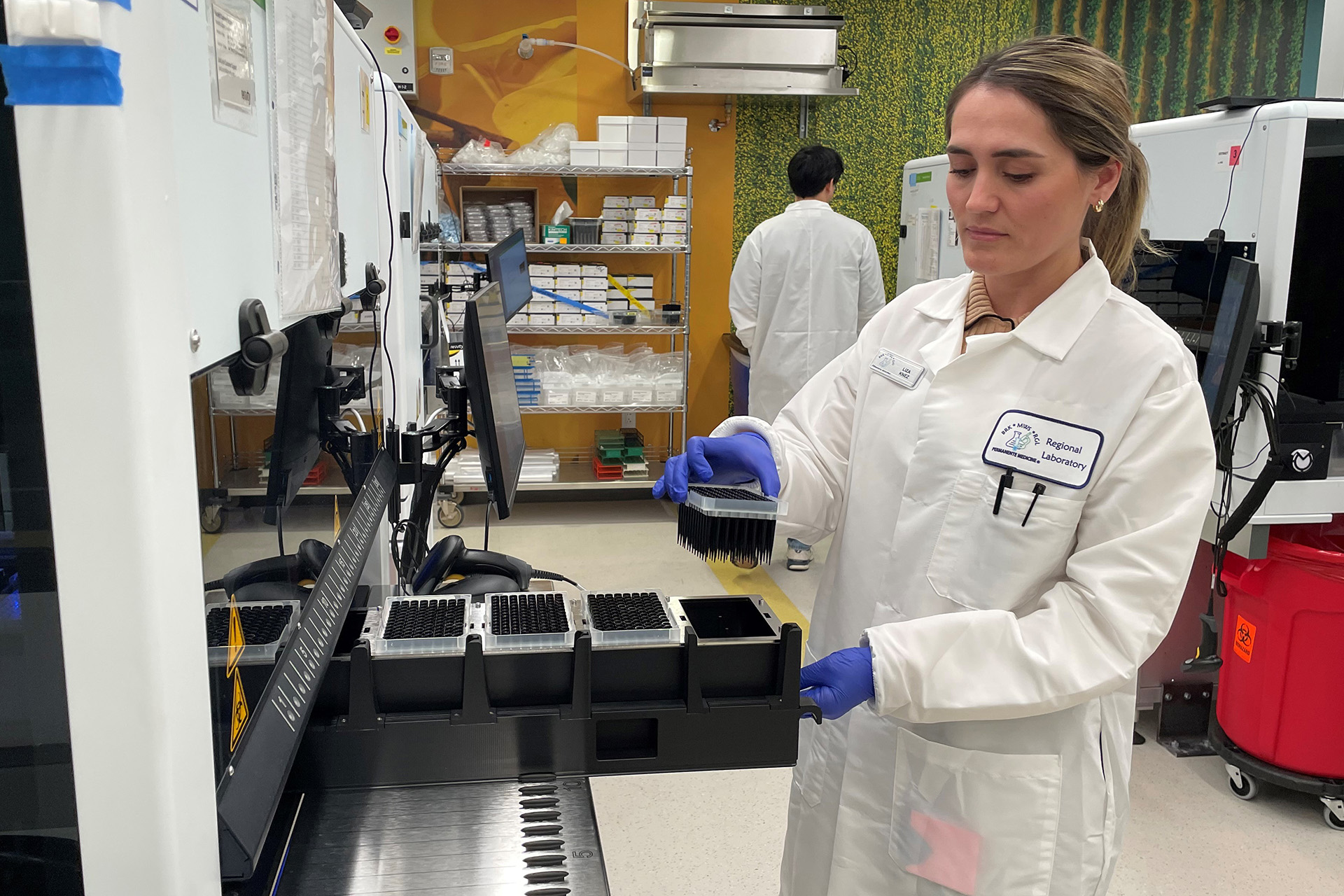
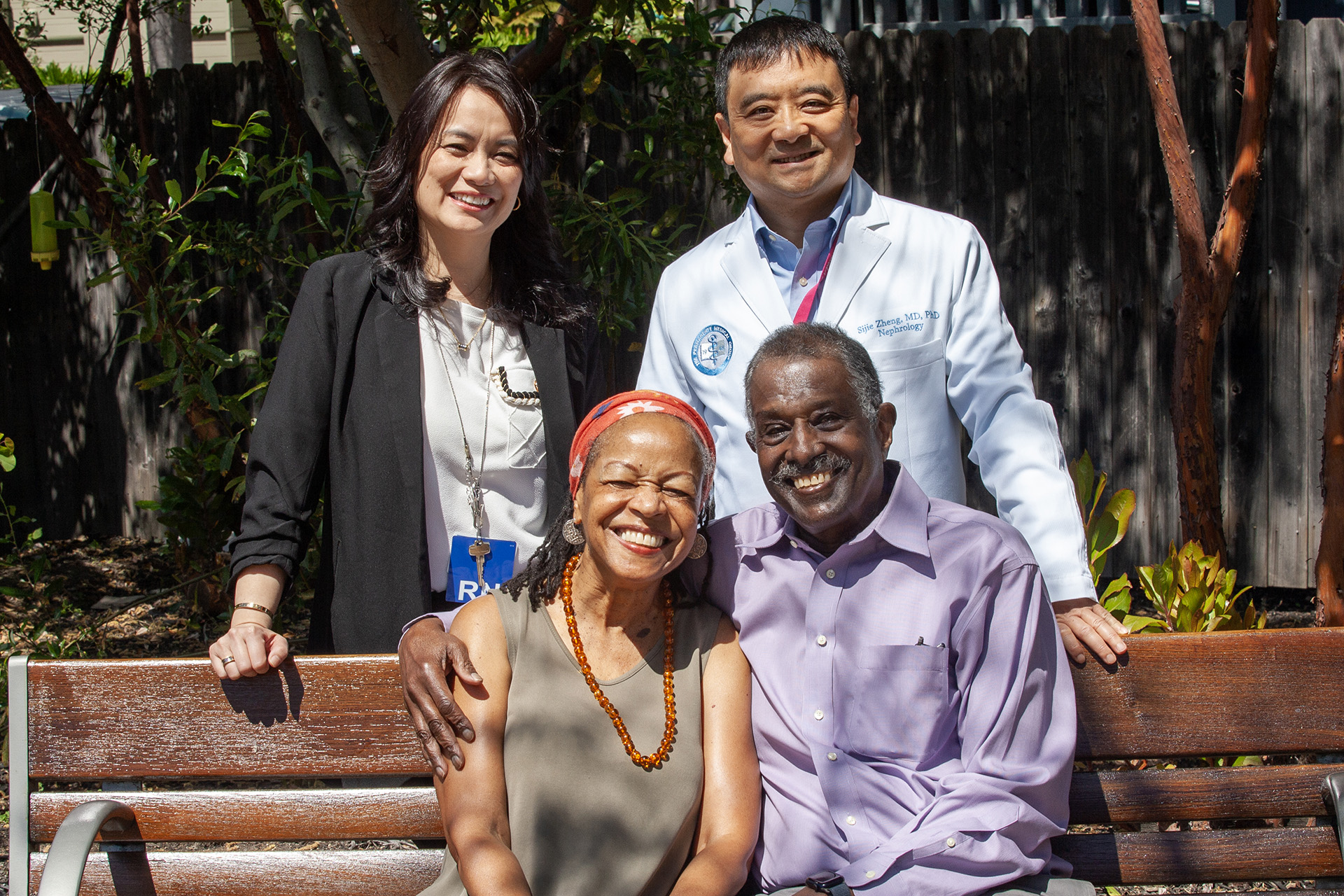

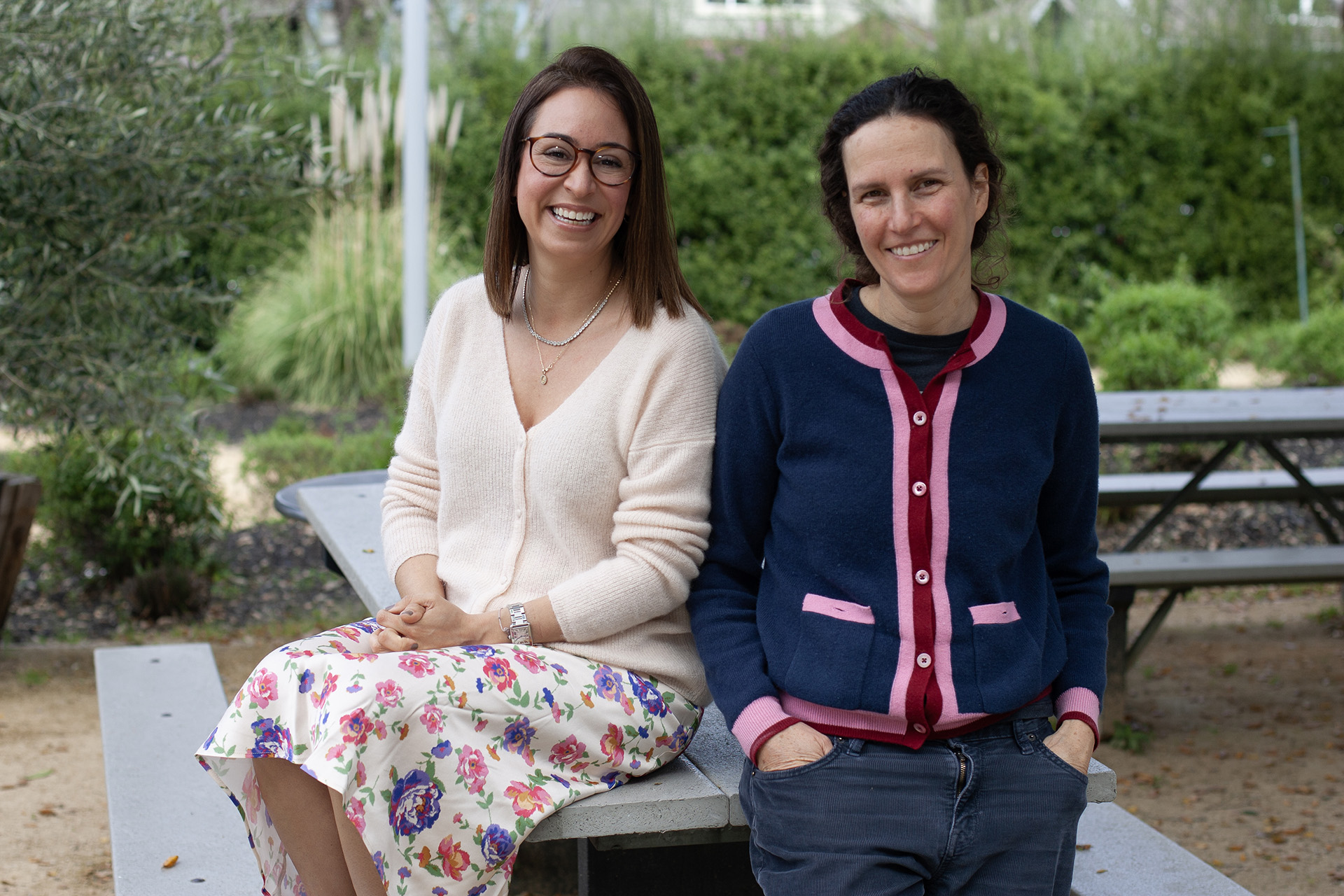

This Post Has One Comment
How absolutely phenomenal that this is available to our patients at Kaiser Permanente!!!!